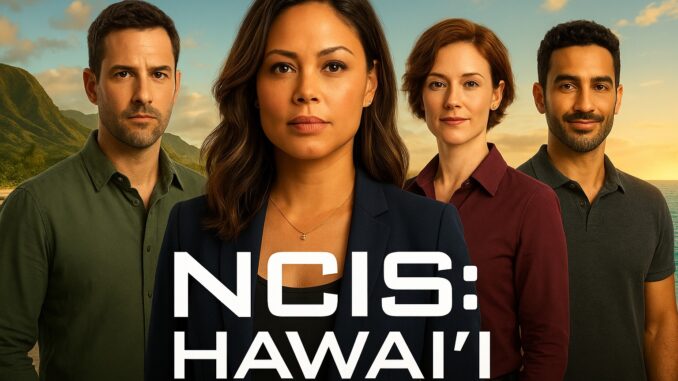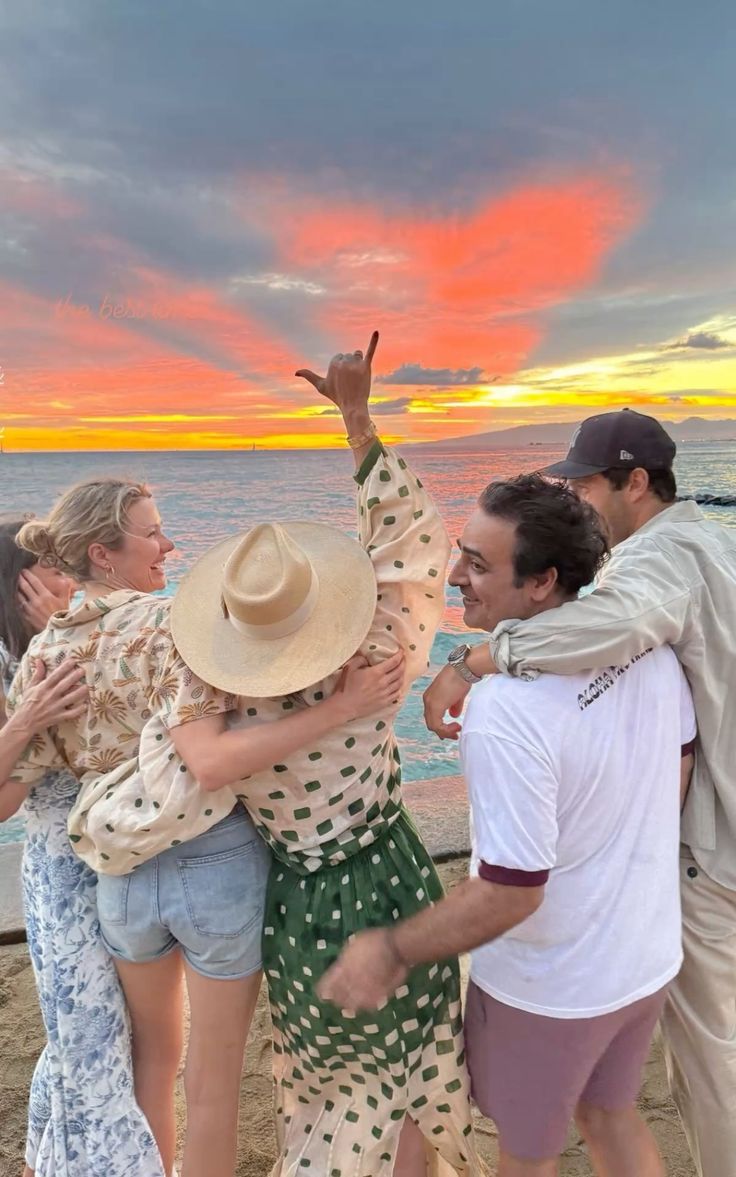
Television fans know the sting of losing a beloved show all too well. But when CBS announced the cancelation of NCIS: Hawai’i, the news hit differently. Unlike many other spinoffs, this series wasn’t just another procedural. It carried the spirit of aloha, blended breathtaking scenery with gripping storylines, and showcased a cast that brought both diversity and charm to primetime television. The decision to pull the plug left fans asking one big question: Why end something so good?
In this article, we’ll dive deep into what made NCIS: Hawai’i unique, explore why its cancelation felt so personal to viewers, and look at the lasting legacy it leaves behind.
The Rise of NCIS: Hawai’i
When NCIS: Hawai’i premiered in 2021, it had big shoes to fill. The NCIS franchise was already a television giant, with NCIS: Los Angeles and NCIS: New Orleans building their own fan bases. Yet, NCIS: Hawai’i carved out a special place almost instantly.
It wasn’t just another military-procedural drama. It brought a fresh perspective, anchored by the first female Special Agent in Charge in franchise history, Jane Tennant, played by the incredible Vanessa Lachey. The show broke barriers while keeping the familiar crime-solving formula that fans loved.
A Cast That Captivated
One of the standout strengths of NCIS: Hawai’i was its cast.
-
Vanessa Lachey (Jane Tennant): The fearless leader, balancing the pressures of work with her role as a single mom.
-
Alex Tarrant (Kai Holman): A character with heart, whose ties to Hawai’i added depth to the narrative.
-
Noah Mills (Jesse Boone): The dependable agent, a rock for both the team and the audience.
-
Tori Anderson (Kate Whistler): Her evolving relationship with Lucy Tara made history for LGBTQ+ representation on the show.
-
Yasmine Al-Bustami (Lucy Tara): The fan-favorite with sharp instincts and a charm that lit up the screen.
Together, this ensemble wasn’t just a team—it felt like a family. And fans grew attached quickly.
Hawai’i as a Character
Unlike many procedurals set in generic urban backdrops, NCIS: Hawai’i made its location a central character.
The lush landscapes, sweeping ocean views, and cultural nods gave the series an authenticity no studio lot could match. The show celebrated Hawaiian traditions and communities while blending them seamlessly into its plots. For many viewers, tuning in wasn’t just about solving crimes—it was about escaping to paradise.
Groundbreaking Representation
Representation mattered in NCIS: Hawai’i. From Jane Tennant shattering the glass ceiling as the franchise’s first female lead to the celebrated “Kacy” (Kate + Lucy) relationship, the show didn’t shy away from telling stories that reflected the world we live in.
This inclusivity wasn’t performative—it was natural, heartfelt, and resonated deeply with fans who saw themselves on screen for the first time.
Why the Cancelation Hurt More
Cancelations happen all the time in television, but NCIS: Hawai’i’s demise cut deeper for several reasons:
-
It Was Just Getting Started: With only three seasons, the show still had plenty of stories left to tell.
-
Dedicated Fanbase: Its loyal audience showed up every week and created a strong online presence.
-
Representation Loss: Many fans felt robbed of seeing groundbreaking characters continue their journeys.
-
Franchise Success: With NCIS still going strong, canceling a thriving spinoff seemed baffling.
The decision felt abrupt and left a void in both the franchise and viewers’ hearts.
The Industry Reality
While passion fuels fandoms, television is ultimately a numbers game. Reports pointed to ratings, budget concerns, and CBS’s broader programming strategy as possible reasons for the cancelation.
Still, many questioned the logic: Was it worth cutting a diverse, vibrant show that attracted both longtime NCIS fans and new viewers?
What Made NCIS: Hawai’i Different
The show wasn’t just another procedural. Here’s what set it apart:
-
Strong female leadership.
-
Cultural integration with Hawai’i.
-
LGBTQ+ representation that broke ground in network TV.
-
A balance of action, drama, and heartfelt moments.
It was a reminder that crime dramas can evolve and still feel fresh.
The Power of Fan Reactions
The cancelation sparked a wave of fan-led campaigns. Hashtags trended, petitions circulated, and loyal viewers rallied for a revival. The passion proved that the show wasn’t just entertainment—it was a community.
Fans weren’t ready to say goodbye, and many still aren’t.
Could NCIS: Hawai’i Return?
In the world of television, nothing is ever impossible. We’ve seen canceled shows resurrected by streaming platforms, fan campaigns, and spin-off opportunities. While CBS seems to have closed the chapter, the popularity of the NCIS franchise leaves the door cracked open just enough for hope.
The Legacy of NCIS: Hawai’i
Even without new episodes, the show’s legacy is clear. It brought diversity, representation, and beauty to primetime television in a way no other NCIS spinoff had.
For many, NCIS: Hawai’i wasn’t just a show—it was an escape, a reflection, and a celebration of something bigger.
The Emotional Impact on Fans
Why does this cancelation feel so personal? Because NCIS: Hawai’i gave people more than entertainment. It offered:
-
Comfort after long days.
-
Representation for marginalized voices.
-
A weekly trip to paradise.
Losing that connection feels like losing a friend.
Comparisons to Other Spinoffs
While NCIS: Los Angeles and NCIS: New Orleans had their own charms, Hawai’i stood apart. Its storytelling leaned into warmth and authenticity, which made its cancelation sting even more.

The Bigger Picture for the Franchise
The cancelation raised questions about the future of the NCIS universe. With the original series still going and new projects rumored, the franchise clearly has staying power. But many fans argue that cutting Hawai’i was a step backward in representation and storytelling.
Lessons Hollywood Should Learn
What should networks take from this? Simple: representation, diversity, and fresh perspectives matter. Audiences crave more than formulas—they crave authenticity. By canceling NCIS: Hawai’i, CBS may have underestimated the power of connection.
Conclusion
NCIS: Hawai’i wasn’t just another spinoff—it was a breath of fresh air, set against one of the most beautiful backdrops in the world. With its groundbreaking representation, compelling cast, and the spirit of aloha, it deserved far more than three seasons.
Its cancelation leaves a gap in the NCIS franchise and in the hearts of fans. But its legacy will continue to remind viewers that television can be both powerful and personal.
FAQs
1. Why was NCIS: Hawai’i canceled?
The cancelation was reportedly tied to ratings, budget, and CBS’s programming strategy, though fans argue the decision felt premature.
2. How many seasons did NCIS: Hawai’i have?
The show aired for three seasons before being canceled in 2024.
3. Who was the lead character in NCIS: Hawai’i?
Special Agent Jane Tennant, played by Vanessa Lachey, was the first female lead in the NCIS franchise.
4. Was NCIS: Hawai’i popular among fans?
Yes, the series built a passionate fanbase that continues to campaign for its revival.
5. Could NCIS: Hawai’i ever return?
While unlikely on CBS, there’s always a chance streaming services or fan campaigns could revive it.